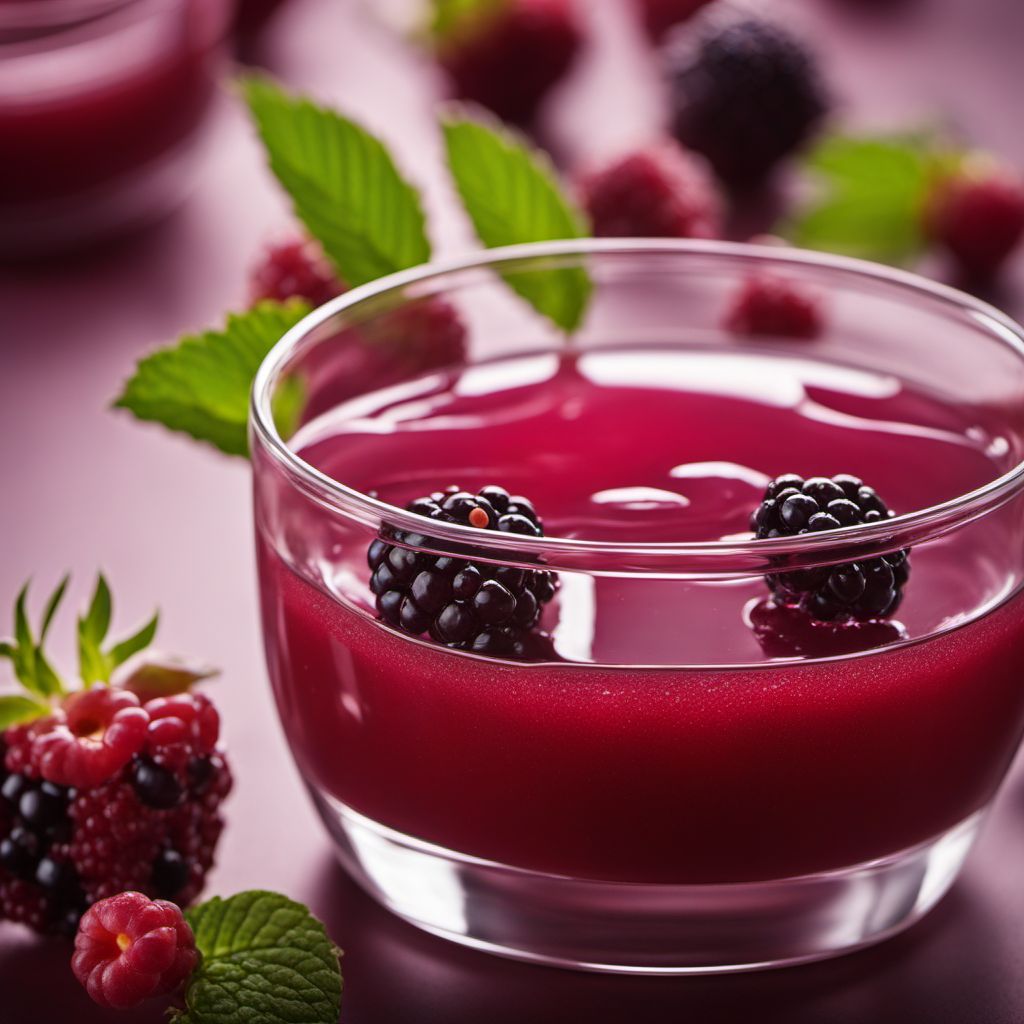
Ingredient
Juice, blackberry
The Dark Elixir
Blackberry juice is made from the succulent berries of the blackberry plant. It has a deep purple color, a sweet-tart taste, and a smooth, slightly thick texture. The juice is often used as a refreshing drink on its own or as an ingredient in cocktails, smoothies, and desserts.
Origins and history
Blackberries are native to Europe, but they are now widely cultivated in various regions around the world. They have a long history of culinary use, dating back to ancient times. Blackberry juice was traditionally used for its medicinal properties and was believed to have numerous health benefits. Today, blackberry juice is enjoyed for its delicious flavor and nutritional value.
Nutritional information
Blackberry juice is a good source of vitamins, minerals, and antioxidants. It is low in calories and fat, making it a healthy choice for hydration. A 1-cup (240ml) serving of blackberry juice provides approximately 80 calories and is rich in vitamin C, vitamin K, and manganese.
Allergens
Blackberry juice is not known to be a common allergen. However, individuals with a known allergy to berries or a sensitivity to certain fruits should exercise caution and consult with a healthcare professional if necessary.
How to select
When selecting blackberry juice, look for brands that use high-quality, ripe blackberries. Check the ingredient list to ensure that the juice is made from 100% blackberries without any added sugars or artificial additives. Opt for organic or locally sourced options whenever possible for the best flavor and nutritional value.
Storage recommendations
To maintain the freshness and quality of blackberry juice, store it in the refrigerator in a sealed container. It is best consumed within a few days of opening. If making homemade blackberry juice, it can be stored in the refrigerator for up to a week or frozen for longer-term storage.
How to produce
Blackberries can be grown in home gardens, provided the climate is suitable. They require well-drained soil, full sun exposure, and regular watering. Blackberry plants can be propagated through cuttings or purchased as young plants from nurseries. With proper care and maintenance, they can yield a bountiful harvest of fresh blackberries for juicing.
Preparation tips
To prepare blackberry juice, start by washing the berries thoroughly and removing any stems or leaves. Place the berries in a blender or juicer and blend until smooth. Strain the mixture through a fine-mesh sieve or cheesecloth to remove any seeds or pulp. Sweeten the juice to taste with honey or sugar if desired. Blackberry juice can be enjoyed on its own, mixed with other juices, or used as an ingredient in various recipes.
Substitutions
Blueberry juice can be used as a substitute for blackberry juice, as they have a similar flavor profile and color. However, keep in mind that blueberries have a slightly milder taste. Other suitable substitutes include raspberry juice or a combination of mixed berry juices, depending on the desired flavor.
Culinary uses
Blackberry juice is commonly used as a refreshing drink on its own or as a base for cocktails, smoothies, and mocktails. It can also be used as an ingredient in desserts, such as sorbets, ice creams, sauces, and glazes. The juice pairs well with other fruits, yogurt, and sparkling water. It is a versatile ingredient that adds a burst of flavor to both sweet and savory dishes.
Availability
Blackberries are commonly available in regions where they are cultivated, such as North America, Europe, and parts of Asia. Blackberry juice can be found in grocery stores, supermarkets, and health food stores. It is also available online for purchase and delivery.
More ingredients from this category » Browse all
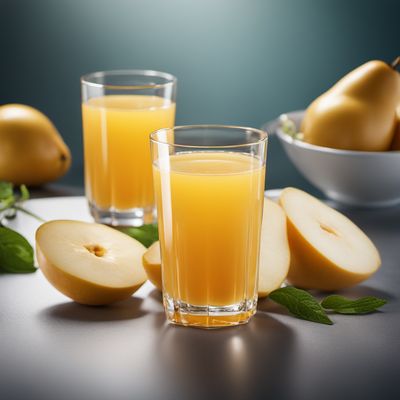
Juice, pear
The Refreshing Elixir of Pear

Juice, guava
"Tropical Delight: Exploring the Exotic Flavors of Guava Juice"

Juice, mango
The Tropical Elixir

Juice, prune
The Sweet and Tangy Elixir of Prune Juice
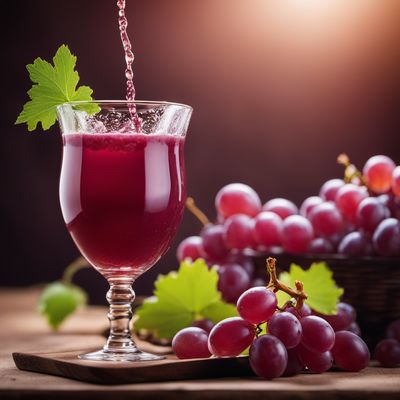
Juice, grape
The Liquid Jewel

Juice, cranberry
Tart Elixir: Unveiling the Vibrant World of Cranberry Juice
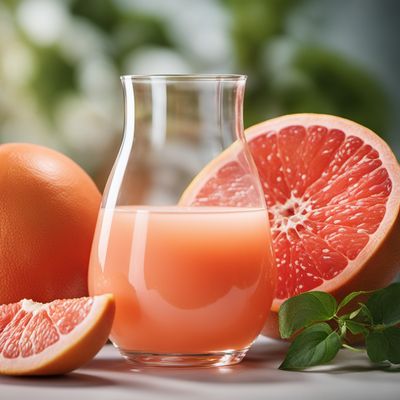
Juice, grapefruit
Tangy Citrus Burst

Juice, red currant
Tangy Elixir: Unleash the Vibrant Flavors of Red Currant
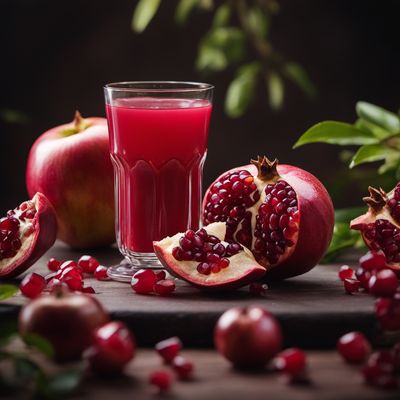
Juice, pomegranate
"The Ruby Elixir: Unveiling the Secrets of Pomegranate Juice"

Juice, lemon
The Zesty Elixir

Juice, nectarine
"The Golden Elixir: Unleashing the Vibrant Flavors of Nectarine Juice"
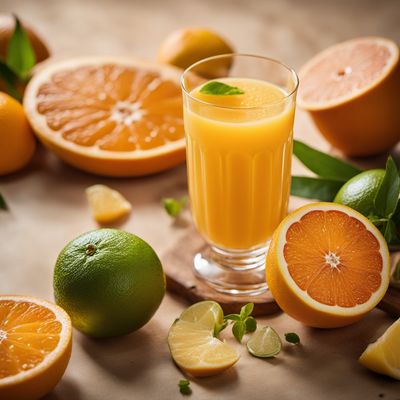
Juice, citrus
The Zesty Elixir